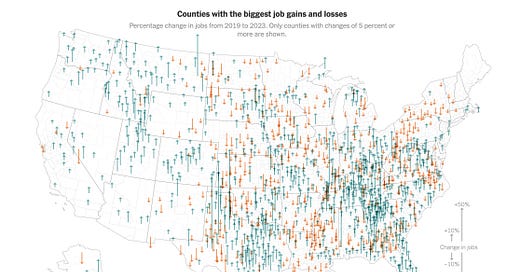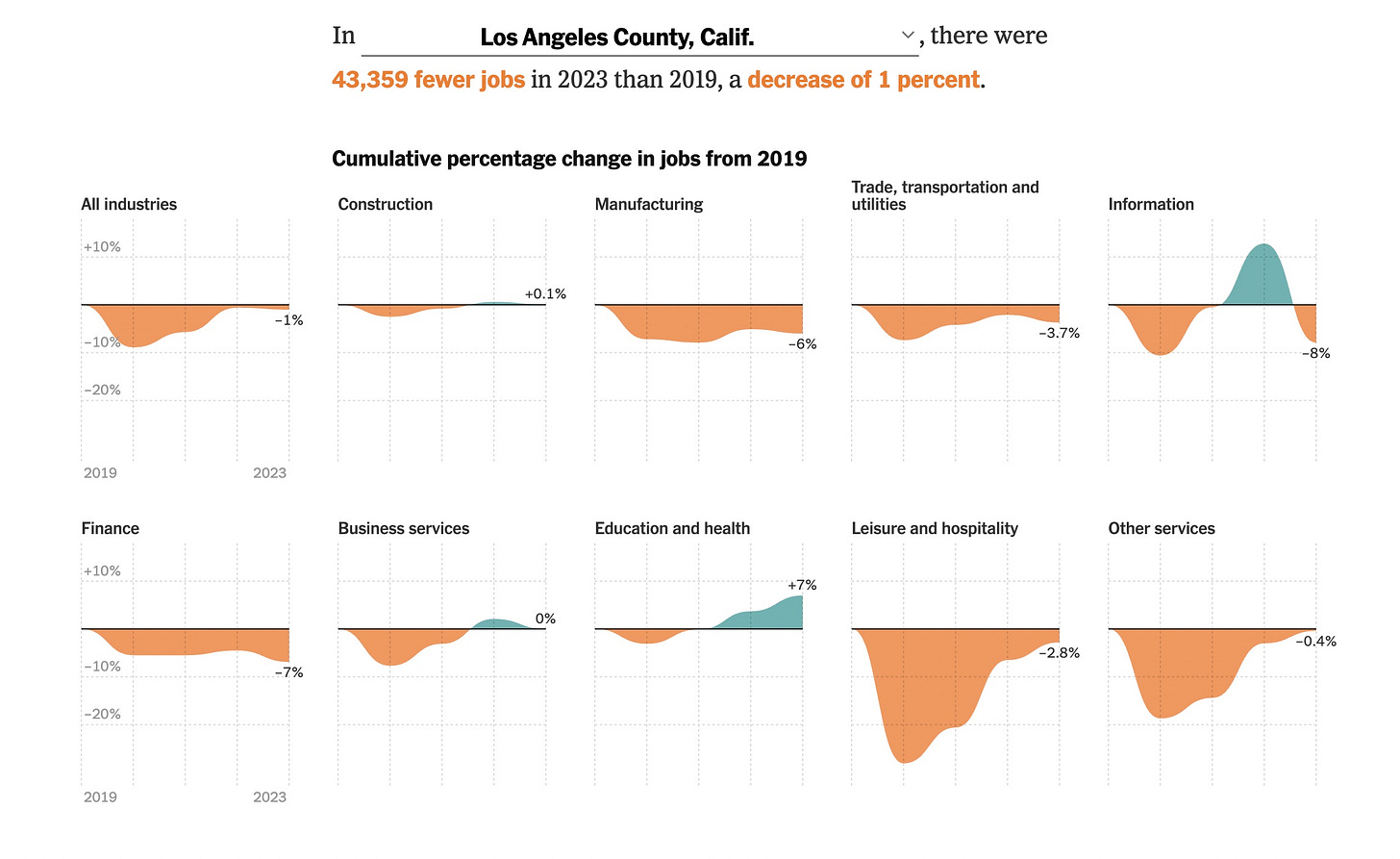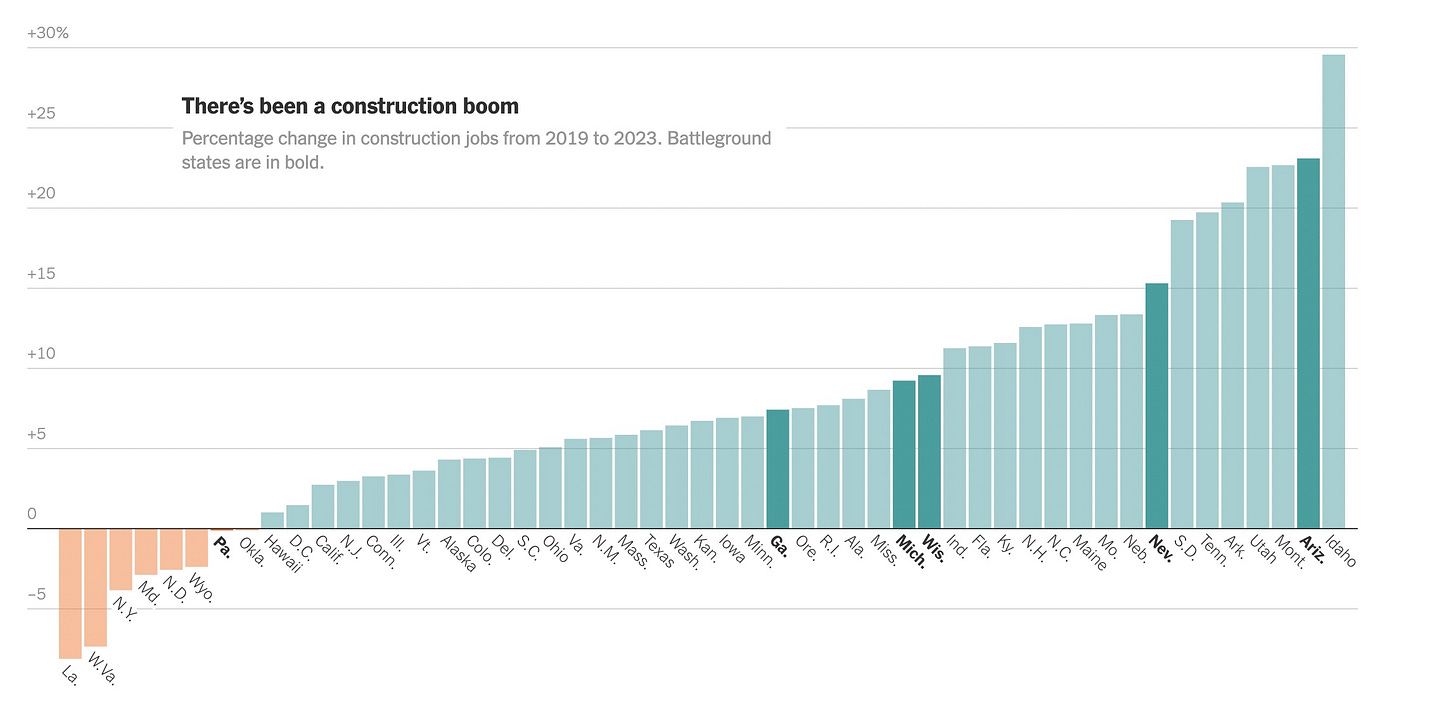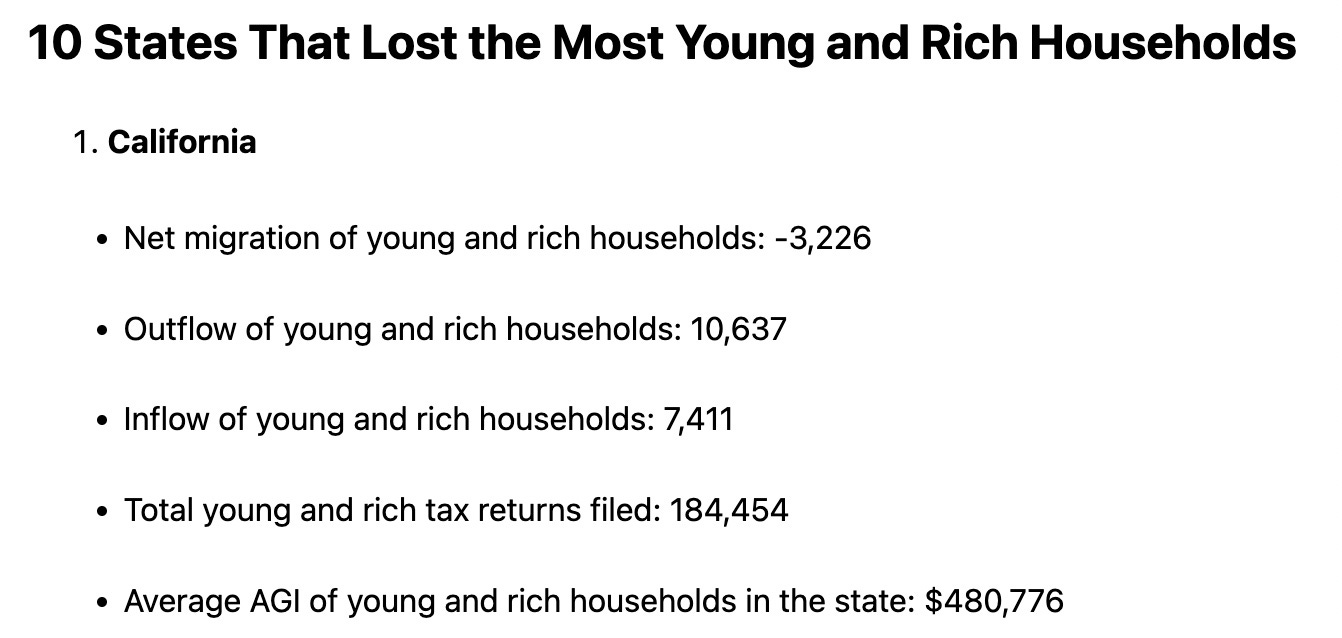Los Angeles Needs to Deliver on Its Promise
How? Good Paying Jobs, Affordable Housing, and Equitable Economic Growth Policies
A picture is worth a thousand words. Last week the New York Times ran a substantive article on the U.S. economy, showing some 19 million jobs created in the past four years.
The winners have some things in common. They are concentrated in the South and the Mountain West, particularly in suburban counties, which have done well in an era of remote and hybrid work.
Below are Los Angeles County’s numbers from the NYT article.
The geography of that unequal recovery helps reveal how the pandemic — and the policies adopted in response to it — reshaped the U.S. economy, changing the kind of work Americans do and where they do it.
Leisure and hospitality decline should be a flashing red light for LA.
A slight increase in Construction jobs shows some promise.
This information is not welcomed news, since it already builds on a lost decade pre-covid. (McKinsey)
Additional Data from a 2024 Smart Asset study shows that Florida and Texas attracted more than double the young and rich households as any other state. After accounting for young high earners leaving, Florida had the biggest gain at 1,786 households. Texas ranked second with a net gain of 1,660 young and rich households. Colorado trailed behind in third place with a net gain of 720.
Using IRS data, the fintech company ranked states based on net migration of young households (ages 26 to 35) in 2022 that earned at least $200,000 a year. The biggest loser - California (-3,226).
Jobs and the economy have been a topic I have written about for more than a decade and the fiscal implications of this data - lost jobs that pay good wages, loss of skilled talent and civic leadership from business leaders and subsequent tax revenues are significant.
Especially when the public sector’s - LA County, LA City, LAUSD, CA State Government, etc. employment levels have far surpassed the private sector.
A continuous out-migration, combined with an increasing unemployment rate (6.5%) and an aging population means billions of dollars in lost tax revenue that would have supported the public sector’s ability to supply the services and programs citizens have come to demand and expect.
Increased local taxes, fines, and fees have seemed to be the solution for the past few decades and they continue to fall on LA’s declining middle-class population. Expanding the amount of city council or county supervisors and keeping their budgets the same may even accelerate the increases.
What we know is Los Angeles has always promised those seeking a better way of life a chance to shape their destiny, no matter the obstacles put in their way.
It took more than half a century to build LA’s world-class economy. LA remains the nation’s largest manufacturing base, home to the world’s leading entertainment companies, and a substantial base of small- and medium-sized businesses. It provides access to the world’s most diverse consumer markets. It is home to a large share of educated people working in our most globally competitive industries – technology, entertainment, biotechnology, and advanced manufacturing.
It has the world’s largest higher education system with 112 college and university campuses which produce more Ph. D.s and graduate degrees than any in America, and they are home to the world’s greatest research institutes, and concentration of Nobel laureates, MacArthur fellows, and members of the National Academies. LA’s network of five Cal State campuses educates 110,000 students each year.
We know of so many resources just sitting on the sidelines - more than $30B in the private sector and philanthropic communities wanting to invest in LA, including in developing housing at all income levels and supporting the leveraging of federal and state dollars that are available to support key quality of life issues, like education, food insecurity, rent relief, to name a few.
We owe so much to those who came before us, no matter if they were born here, or came across oceans and borders to find their dream.
The key is to build an economic development platform that will stimulate the private sector investment truly needed to support LA’s economy, its communities, and public and social sectors in the region.
I am bringing back the Insights on LA newsletter with a new partner - Deidre Lind the founder of A Better Impact, so we can bring our thoughts, opinions, and expertise from decades of working with private, public, and social sector leaders to help build a path forward for LA that will help it fulfill its promise now and in the future.
Michael H. Kelly
CEO of the Sconset Group and Executive Director of the Drucker Institute at Claremont Graduate University












